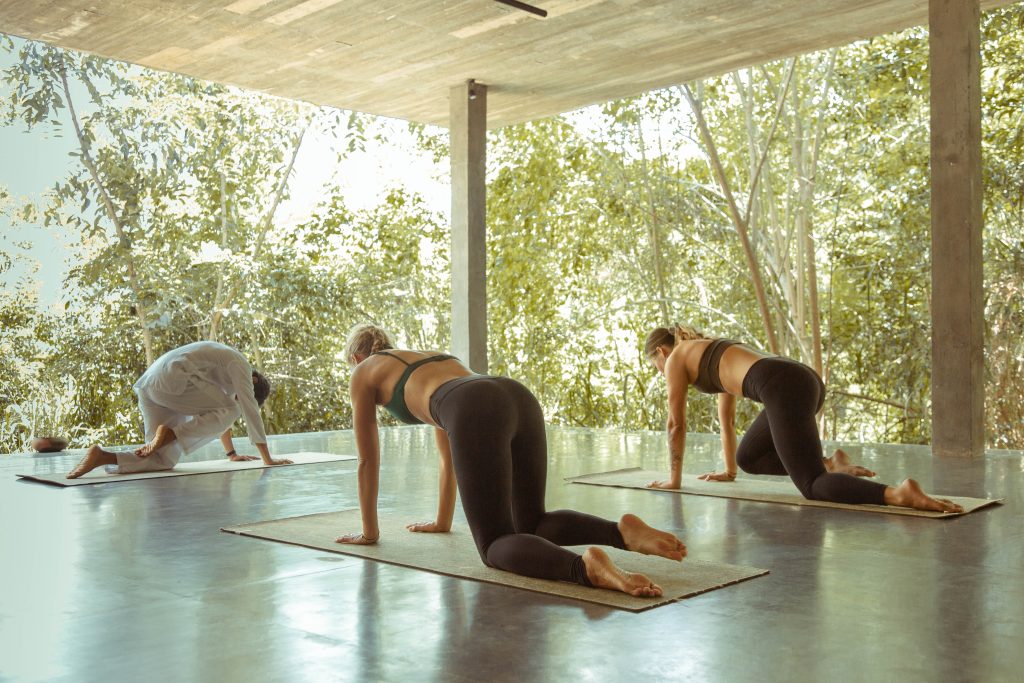Human Sustainability
This is longer that the usual bit of journaling, but it so resonated with me when I read it. It made me wonder just how many of you are feeling or felt the drag and drain of the last few years or have been in a moment in life where you are spent, to keep pushing and plodding along is draining.
I love that Santani Wellness in Sri Lanka termed The Year of Human Sustainability ~ “we need to think of our own body and mind as an ecosystemâ€. Here is a note from one of their guests:
Near the end of my hardest year on record, after living through a pandemic and months of war with two small children in tow, I was a spent force. My productivity was shot. I was getting sick from the slightest breeze. I felt mentally stuck in a deep pit. At my lowest I curled up crying in bed while my father patted me gently on the back. I was grateful for the comfort, but horrified I had fallen into such a dark place. As an adult woman with so much agency and strength, I had failed myself—lost the basic ability to stay afloat.
I launched an intervention on myself. My husband took over watching our kids while I sent myself on retreat to Sri Lanka for a generous stretch of three weeks. It seemed wildly impossible to carve out that time for myself, until I just did it.
I returned from the trip joyously happy and luminously healthy. More than a year has passed since that journey and I can still feel the positive effects. One thing I learned stands out, above all: the concept of human sustainability. Just as we think of environmental sustainability, mitigating the impact of pollution and human activity on the natural ecosystem, we need to think of our own body and mind as an ecosystem. We need to mitigate the impact of stress—all forms of pollution and negative shocks—to sustain ourselves in the modern environment. We need to develop an ability to cope with the factors that are introducing overwhelming stress into our personal ecosystem. Every day we can end a little healed or a little degraded. The net balance determines our human sustainability, how well we feel or how quickly we head into negative territory.
This is not my idea. It comes from a very wise man who befriended me on my journey, the founder of the Ayurvedic wellness resort Santani. He has developed the idea of human sustainability into a living practice and a structural lifestyle. He brought it to life at Santani in the perfect healing habitat; I was one of the lucky ones who got to feel its transformative effects. In the green hills not far from Kandy, I breathed perfect air, ate perfect healthy food, and took in the Ayurvedic detox program that turned me around. Every meal was calibrated to the foods and ingredients my body needed. Though it was not my goal for the trip, extra weight on my body effortlessly dropped off.
Yoga, Ayurvedic therapies, and daily massage will do wonderful things to revive a broken body. But what I think I needed most was the quiet, interrupted only by the sound of insects and Buddhist chants rising from the valley. Santani cleared the space for me to process what I’d been through, to mourn people and plans that had been lost. It gave me the space to cry, to get angry, then to accept reality and transition to it. I am a religious person; I wouldn’t say I was mad at God, but I was certainly confused by the mess we’ve made of creation. At Santani I could stare out at the green hills and have an honest conversation with myself, with my notebook, discharging that angry confusion.
How do we heal now? Retreat, retreat, retreat. That would certainly be best. But short of that, I have found some ways to do for myself the things that Santani did for me. We all need the space to feel the things we feel about what’s happening around us, to have honest conversations with ourselves, and discharge the anger, fear, and anxiety that build up within. On my first retreat more than a decade ago I devised my own forgiveness practice. Opening my notebook I began to write, “I forgive my boss for X, I forgive my family for Y, I forgive myself for Z,†until line by line the pages filled up. It enabled me to empty myself—a freedom and a joy that was illuminating.
Before I took my first solo retreat, more than a decade ago, my close friend and informal life coach Rabbi Avraham Berkowitz gave me the language of “Teshuvaâ€â€”a Hebrew concept of returning to one’s right and healthy path, straightening ourselves out when we’ve lost our way. It’s repentance as a personal turnaround. Teshuva became my watchword and the guiding concept for every retreat I’ve taken since. Return to centre. Or return to sender, if—like me—you seek to align with a higher power.
As I said, it has been more than a year since my trip and I feel the effects still rolling. Those of us who care to pursue an upper trajectory and help others to the same need to share our lessons learned. We need to share tips for enhancing our human sustainability. We know the pitch we are in now. The hits will keep coming. The only thing up for change is how we deal with them and how happily we live alongside them. A war and the pandemic may have altered my plans, but I won’t let them cancel my basic aspiration to be happy. I wish the same for all of you. Let’s make this the year of human sustainability.

There’s many feelings and reminders in the above words. Take them as you need and remember your Human Sustainability.
Hugs & happiness, Karen
